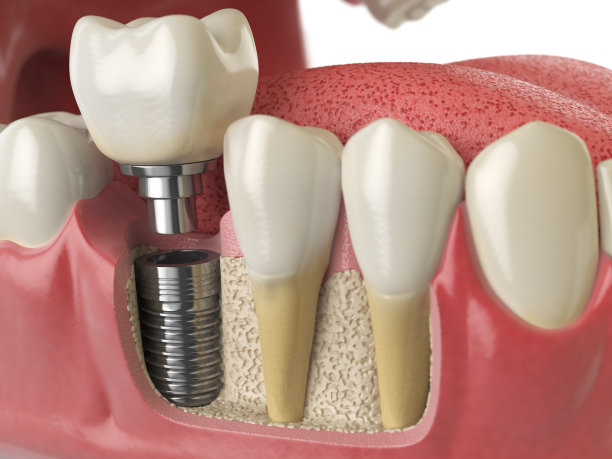Summary: Root canal treatment is a vital dental procedure aimed at relieving pain and saving teeth affected by infection or decay. However, ensuring safety and effectiveness during the process is crucial for both dental health and patient comfort. This article provides essential guidelines to help individuals prepare for their treatment, choose qualified professionals, understand the procedure, and post-treatment care. By establishing a solid foundation of knowledge about root canal procedures, patients can alleviate their fears and enhance the overall success of their treatment.
1. Preparing for Your Root Canal Treatment

Preparation is a key step in ensuring both the safety and effectiveness of your root canal treatment. Before your appointment, its essential to communicate openly with your dentist about your medical history, particularly any allergies or current medications you are taking. This information helps the dental professional devise a precise and safe treatment plan tailored to your needs.
Additionally, addressing any anxieties before the procedure can significantly improve your experience. Techniques such as discussing sedation options, practicing deep breathing, and scheduling a visit to familiarize yourself with the clinic environment can aid in reducing stress and ensuring a calm mindset for the procedure.
Lastly, arranging transportation for the day of your treatment is advised, particularly if sedation will be used. Having someone to assist you post-treatment not only ensures your safety but also offers emotional support as you recover.
2. Selecting the Right Dental Professional
The effectiveness of a root canal treatment largely depends on the skill and experience of the dental professional performing the procedure. Therefore, selecting the right dentist or endodontist is imperative. Start by researching credentials, specialized training, and reviews from other patients to gauge the clinicians expertise.
Ask your dentist for recommendations or seek referrals from trusted dental associations. Its crucial to ensure that the dental professional you choose has specific experience in performing root canals, as this is a specialized area of dentistry.
Lastly, consider scheduling a consultation prior to your appointment. This initial visit allows you to discuss the procedure, view the offices technology and environment, and feel comfortable with the professional who will be handling your treatment. Building a good rapport can significantly increase your confidence throughout the process.
3. Understanding the Root Canal Procedure
Having a clear understanding of the root canal procedure itself can alleviate fears and clarify what to expect. The treatment usually begins with an initial examination, which will include X-rays to assess the extent of infection and the condition of the teeth. Once a treatment plan is laid out, local anesthesia is applied to numb the area, ensuring you remain comfortable during the procedure.
During the actual treatment, the dentist will carefully remove the infected pulp from inside the tooth, clean the canal system, and shape it for filling. Afterwards, the tooth is typically sealed. Some cases may necessitate a follow-up appointment to place a crown, which provides enhanced protection and functionality.
Being informed about the process empowers patients and helps them to develop realistic expectations regarding sensations and recovery timelines. Understanding the procedure can also help in distinguishing between regular discomfort and signs of complications requiring immediate attention.
4. Post-Treatment Care and Recovery
Post-treatment care is essential for ensuring a smooth recovery and the long-term success of a root canal. When your procedure is complete, your dentist will provide specific instructions tailored to your individual needs. Common recommendations include taking prescribed medications and avoiding hard or chewy foods for a designated time.
It is normal to experience some swelling, tenderness, or slight discomfort following the procedure, but these symptoms typically subside within a few days. Be vigilant about your symptoms; any severe pain or prolonged swelling should be communicated to your dentist promptly for evaluation.
Regular dental check-ups following your root canal treatment also play a crucial role in monitoring the health of the treated tooth. Your dentist will track your recovery and address any concerns, ensuring that your dental health remains a top priority.
In summary, understanding and following these essential guidelines can significantly contribute to a safe and effective root canal treatment experience. Awareness of preparation, professional selection, procedure details, and post-treatment care lays the groundwork for ensuring both dental health and patient comfort. Engaging with your dental care provider opens the door to better outcomes and reduced anxiety during the treatment process.
This article is compiled by Vickong Dental and the content is for reference only.
Vickong Dental
Vickong Dental is a large medical group established in Hong Kong in 2008 by professors from well-known medical universities in Guangdong and Hong Kong, as well as medical doctors from key national '985' universities (including Master's supervisors and senior professors). The chain of branches brings together expert dentists with PhDs and Master's degrees from Hong Kong and Mainland China, committed to providing high-quality dental treatment.
"Vickong Dental Practices the University Motto of 'Healing and Serving Society,' with a Stable Operation for Sixteen Years. It Has Been honored with Hong Kong Enterprise Leaders's Choice,' and is a Global Trusted Implant Center for the Nobel Implant System. Recommended by Hong Kong Metro Broadcast and Guangdong Television, it Serves Customers from Over Thirty Countries and Regions, Gaining the Trust and Favor of Citizens from the Guangdong-Hong Kong-Macau Greater Bay Area and Surrounding Cities.

Thousands of customers' unanimous praise
The most recognized and highly recommended dental service by customers in the Guangdong-Hong Kong-Macau Greater Bay Area
We Ensure You Receive Detailed Care and Attention Here
Hong Kong standards, Shenzhen prices, Your Trusted English-speaking dentists

Vickong Dental Medical-Grade Instrument Disinfection Process
Vickong Dental Medical-Grade Instrument Disinfection Process

Vickong Dental Chain: A Warm and Comfortable Environment for Treatment






Appointment Hours

Q&A
Why choose Vickong Dental?
Vickong Dental practices the university motto 「Medicine to Benefit Society」, with each branch bringing together highly qualified dentists with doctoral and master’s degrees from Hong Kong and the Mainland, and has maintained seventeen years of steady operation。Recipient of 「2024 Hong Kong Enterprise Leaders Brand」, 「2025 Hong Kong Enterprise Leaders Brand」, a Nobel Biocare Global Trusted Implant Center, and a brand recommended by Metro Radio Hong Kong and Guangdong TV。
To date, we have served customers from more than thirty countries and regions,earning exceptionally high word-of-mouth recognition and trusted recommendations from residents across the Guangdong-Hong Kong-Macao Greater Bay Area and surrounding cities
We have eight major branches in Zhuhai、Shenzhen,and a consultation and service assurance center in Hong Kong,so you can book a free consultation at any time for any questions,which is very reassuring.
If I do not accept the quotation after the CT scan, will I be charged??
No! As long as the actual treatment has not started, you will not be charged any fees.
Will there be any additional charges during the treatment process?
No, there won’t be any additional charges. Before treatment begins, we will clearly explain the treatment plan and its corresponding fees. Only after the patient agrees and signs the consent form will we proceed with the dental service.
Can I pay in Hong Kong dollars?
Yes. Vickong Dental accepts payment in Hong Kong dollars. The amount will be converted based on the exchange rate of the day, and the applicable rate will be clearly communicated to you in advance.
Can I reschedule my appointment at any time?
Yes. Please contact us via **WeChat** or **WhatsApp** as early as possible, providing your original appointment time and details, along with your preferred new date and time slot for rescheduling.













